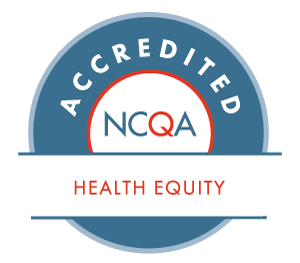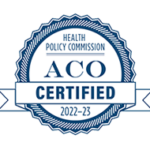AUTHOR
Yudi Liu
Back in 2021, we (C3) formed Community Pharmacy Cooperative (CPC), a non-profit subsidiary, with the mission to improve pharmacy operations and clinical services at Federally Qualified Health Centers (FQHCs). CPC partners with FQHCs to deliver clinical and economic value to their pharmacy services and to improve access by assisting patients in receiving and understanding their medications.
Over the past decade, the pharmacy market has seen significant changes in competition, insurance benefits, drug spending, and consumer behavior. Part of the reason for these market shifts is that prescription drugs themselves are experiencing record number sales. To keep up with demand, pharmacies have set up new shops, traditional and otherwise with direct-to-consumer solutions like PillPack, which Amazon acquired in 2018. Rising drug prices and out-of-pocket costs are other factors of concern, particularly when prescription drug spending is high (valued at $378.0 billion in 2021) and continues to increase. While cost containment measures are necessary, consumers– or patients in this case– often find themselves in the crosshairs of stakeholder interests that do not represent their own, thereby painting a complicated landscape for pharmacy programs and reform at large:
- More adults are taking prescription medications: According to CivicScience data, 70% of U.S. adults self-reported taking at least one prescription drug in 2023, a 14% increase in prevalence from 2019.
- Medications are getting more expensive: The average price of prescription drugs rose 10% from 2021 to 2022, which was faster than the inflation rate during that time.
- Those high prices are a problem for low-income people who need prescriptions: A recent poll by The Economist and YouGov found that 37% of respondents have skipped filling a prescription, and for people with households under $50,000, 44% have forgone medication completely because of costs.
These facts offer a grim picture for patients who are impacted by the deals made between drugmakers, lawmakers, and healthcare organizations, each with bottom lines to meet. FQHCs feel this strain acutely because they are safety net providers who operate on small cash reserves while serving patients who tend to be clinically complex and from vulnerable populations (e.g., low-income and racial/ethnic minority groups). Because FQHCs are limited in their revenue sources, a well-run pharmacy and pharmacy program can be a strategic way to coordinate care and nest clinical initiatives like medication therapy management in an economically sustainable model.
CPC’s business model and tools are uniquely designed to address pharmacy operations and services at FQHCs. Its goal is not to out-compete giants like CVS and Walgreens but instead out-service them in three domains:
- Improving 340B performance
- Enhancing operational and clinical pharmacy performance
- Supporting FQHCs in standing up and/or operating their own pharmacy
If you follow healthcare news, HRSA’s 340B Drug Pricing Program should be no stranger. Intended to cover patients who receive services from entities for which grant funding or FQHC look-alike status has been provided, 340B requires drug manufacturers participating in Medicaid and/or Medicare Part B to sell outpatient drugs at a discounted price to covered entities by way of contract pharmacy services.
Why 340B is a hot button issue facing legal challenges is not unlike reasons cited against other federal programs with a lot of money invested: increasing costs, lack of oversight, and drug diversion and duplicate discounts. Less disputed, however, is the program’s effect on improving access to prescription medication for low-income populations who might otherwise not be able to afford care.
As nonprofit organizations, FQHCs operate with lean resources, whether that be staffing or finances. Therefore, achieving efficient pharmacy operations is critical for FQHCs to continue their work as safety net providers. CPC helps FQHCs improve 340B performance by offering expertise and coaching along with taking real time electronic health information data and providing analytical dashboards to help the FQHC optimize their 340B program in a compliant manner.
But its reach extends beyond just 340B. CPC provides support and guidance on clinical pharmacy practice, working with FQHCs to optimize their operations and improve in areas such as quality measures, provider experience, and cost management. Because of its varying arms of expertise and assistance, all of which are implemented in collaboration with FQHCs, CPC is a true all pharmacy supportive network by health centers, for health centers.
I sat down with our Chief Pharmacy Officer, Tom Siepka, to hear how he would describe CPC and to learn what he believes are its unique elements of success.
What are the challenges for a Federally Qualified Health Center (FQHC) to running a pharmacy program, and what are the benefits of opening one on-site?
We have FQHCs who want to open their own pharmacy but do not know how or where to start. These health centers run on tight budgets and may forgo bringing on clinical pharmacists if they can use that staffing budget to hire another medical provider. These situations are common but also unique worries of FQHCs, so CPC helps by providing input on and analysis to show if having a pharmacy would benefit the health center.
The benefits of an in-house pharmacy are plentiful. Care coordination is a big one. Pharmacists work directly with health center providers to customize medication regimens to improve compliance and healthcare measures. For instance, for patients experiencing housing insecurity or homelessness such that medication storage is a challenge, the approach can be to dispense prescriptions with shorter “fills” which may not be an option at a chain pharmacy where 30-day fills (or longer) are standard. On the other hand, if the patient has a complex treatment plan, health center pharmacies can do what is called “compliance packaging” which is when pills are grouped in blister cards organizing medications by time of day to help the patient stay compliant.
I can see how all these solutions add up to significant savings from more efficient operations and application of resources. What has been the measured fiscal impact?
The health centers are often stunned when we share our projections. Of course, it is even better when they see actual savings and improved revenue. We had a health center transition from prescribing through a contract pharmacy to standing up their own. They experienced 25-30% in savings because they were no longer paying for administration and dispensing fees which are common in contract pharmacy arrangements. Additionally, FQHC owned pharmacies experience greater utilization of 340B medications as there are no restrictions or carve outs with an in-house or owned pharmacy.
Without giving away the secret sauce, what makes CPC stand out in its approach and solutions for improving pharmacy operations at FQHCs?
Because CPC is a non-for-profit and FQHC lead LLC, the organization is not set out to profit from its work with FQHCs. The goal is to drive clinical quality and economic value at FQHCs so they may better serve the patients. This is very different from vendors in the marketplace which take 20% or more in the savings and revenue of the FQHC pharmacy.
We have created customized in-house interactive analytics tools that pull in each health center’s unique data and provide and guide performance improvement initiatives. We use data to not only analyze 340B medication use and impact but also provide clinical utilization opportunities and impacts to the health center.
Our goal is to support FQHCs in having the margins to drive mission. What they are doing is patient-centered, equity focused, and community driven. So, their success is our success.





